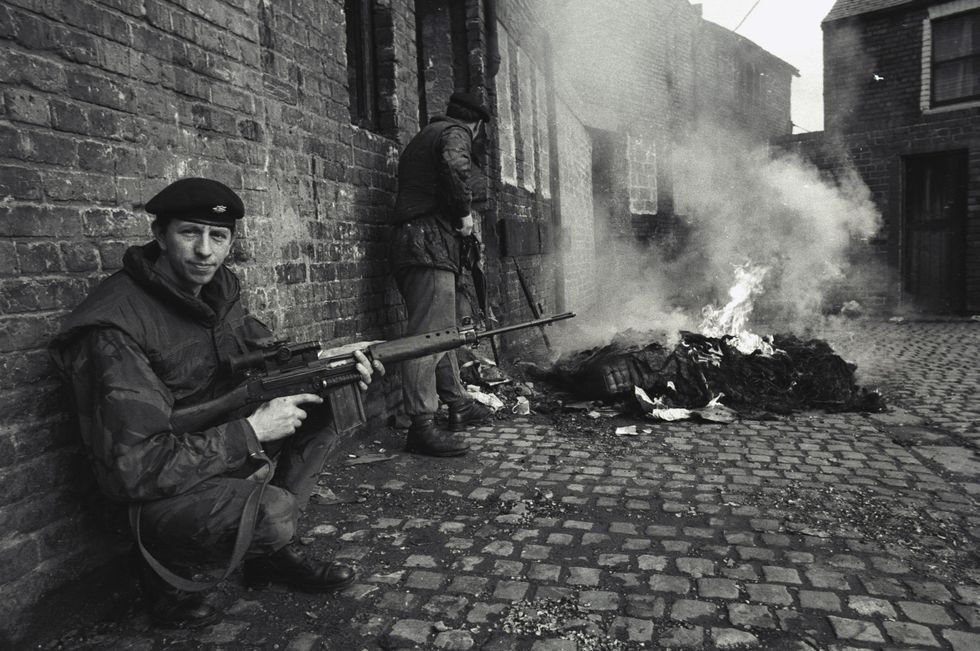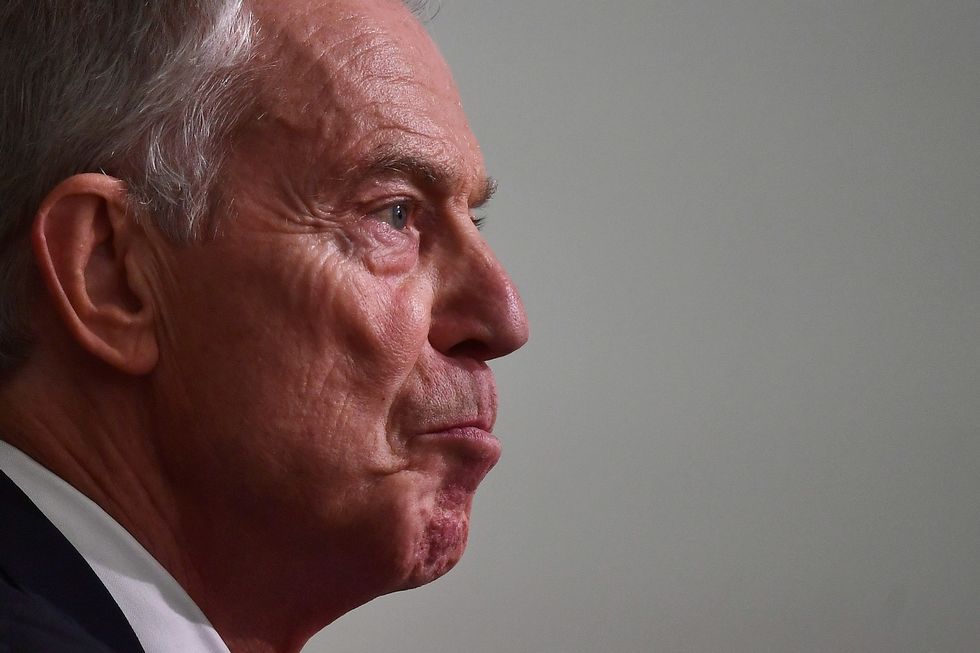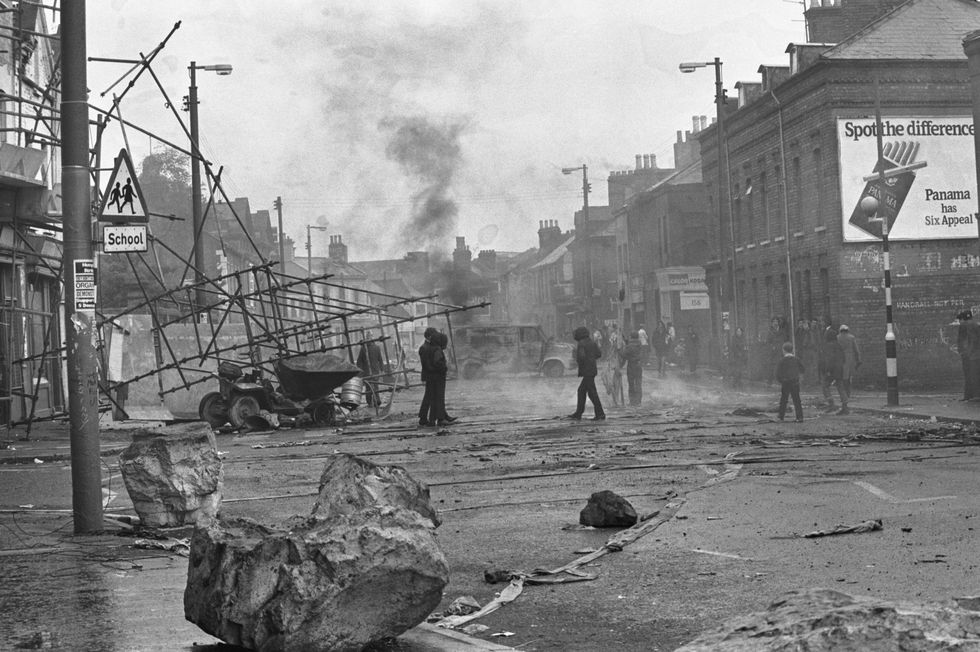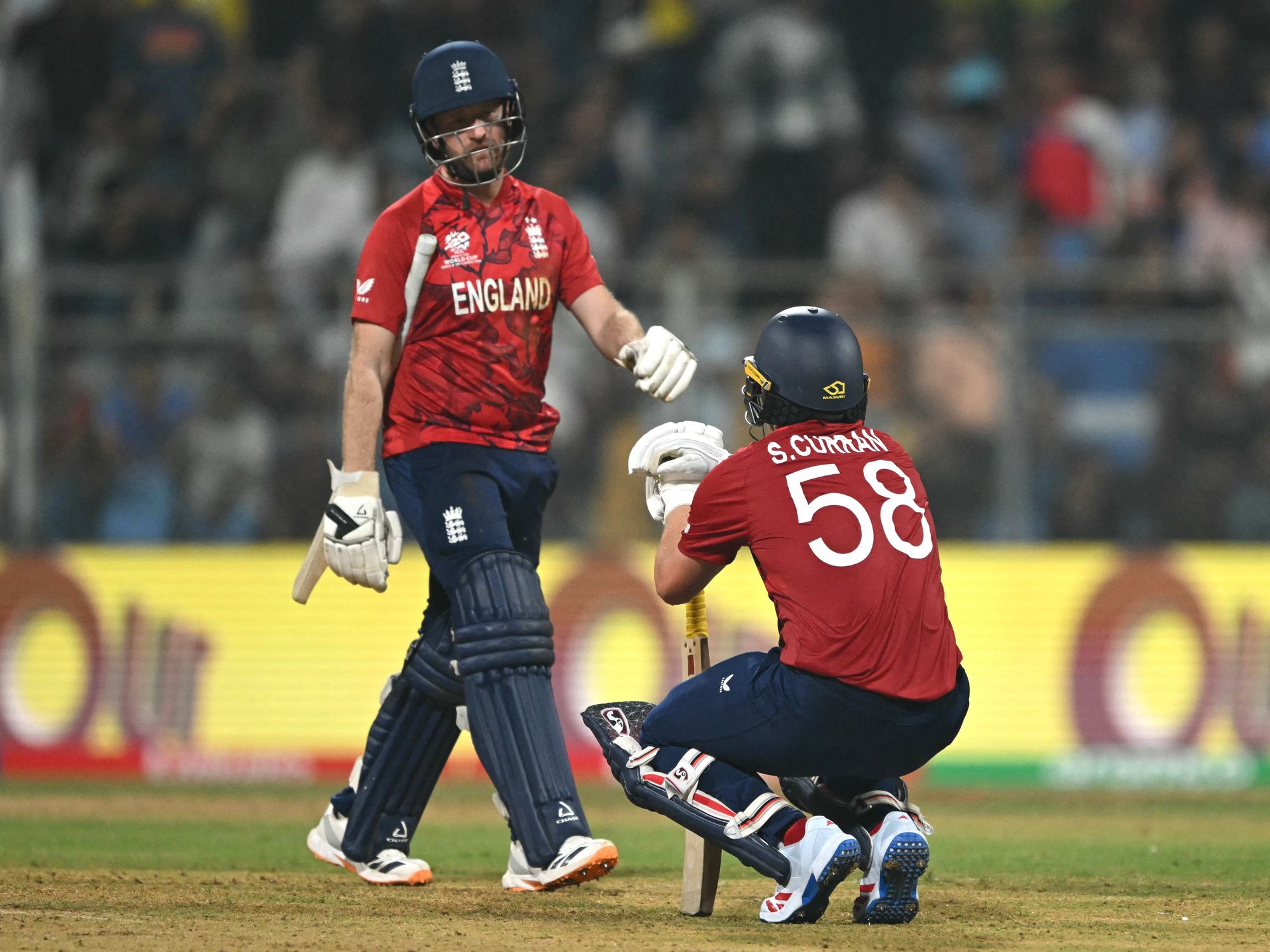25 years on from the Good Friday, Northern Ireland veterans are still fighting - Dougie Beattie
OPINION: GB News correspondent Dougie Beattie outlines the plight of Northern Ireland veterans living in fear of being the next target of lawfare
Don't Miss
Most Read
Latest
To understand the veteran's legal fight, we must look at Tony Blair's 1998 Good Friday Agreement.
We must understand that it was a political settlement sold to the people as an end to all of Northern Ireland's sectarian violence, that it would draw a line under the province's darkest days.
Blair was eager for his page in history but to achieve this he decided to give secret concessions to the IRA that would protect them from future prosecution, and allow a fragile government to establish itself.
Many of Sinn Fein's members had previously been jailed for acts of terrorism, and the thinking was that historical investigations may see many of those republican politicians arrested and bring down the political institutions.
In 2006, Blair secretly gave further concessions to Gerry Adams with letters to IRA members who were still being sought for historical terrorist attacks (including the Hyde Park bombings).
These letters became known as letters of comfort (we can only assume that the then lawyer from the human rights on Northern Ireland's policing board Sir Keir Starmer had sight of them). No matter how you look at this it amounts to an amnesty for those that hold them.
Government must apply the law on equal terms, there can be no room for doubt that some are above it, and when politicians grant amnesties, it can have a profound effect on those who defend it and keep society safe.
In 1969 Harold Wilson's government deployed British troops to Northern Ireland to quell sectarian violence.
This was all but a peacekeeping force that would stay for nearly 30 years and see over 1,500 British soldiers lose their lives. Many officers from the Royal Ulster Constabulary were maimed and 319 were murdered by terrorists.

A British soldier provides cover for his fellow soldiers while they check out a burning building. The IRA was known to set fire to a building and wait for the soldiers to show up and then ambush them.
|Getty
By the 1980s it was said Northern Ireland was one of the most dangerous places on earth as bombings and shootings had become a daily event.
Policing became a firefighting exercise and with so few officers compared to the amount of major events, investigations were hurried and the fact that nationalist communities were warned not to engage with police meant that many cases were left unsolved.
It was next to impossible to have bobbies on the beat and a bridge was formed between the army and policing that would be driven by intelligence and surveillance squads known as the Special Branch.
This unit would stop thousands of attacks but pay a heavy price with their own personnel. They became the top targets for the IRA who had become paranoid about the branch's ability to recruit informants.
By the 1990s the branch had substantial agents in all areas of Northern Ireland except for South Armagh (speaking with ex branch officers they had a respect for this IRA unit and its ability to keep its members an information close).
While politicians were granting amnesties to terrorists, no consideration was given to the security forces that had risked so much to keep the country running.
It was thought that the government would protect those that had protected society, but in reality Blair had left the police and military legally exposed to solicitors looking for cases that may have had hurried or incomplete investigations and in particular targeting those in Special Branch.
Under the Good Friday Agreement, an office of the police ombudsman was created and examined many historical cases but because amnesties had been given to terrorists the main thrust of their investigations is directed at the security forces.
A new term of collusion was produced which examined all links between paramilitaries and covert operations in both the police and military

The Good Friday Agreement, brokered by Washington and ratified by governments in London and Dublin, largely ended three decades of devastating sectarian conflict in Northern Ireland and intermittent terrorist attacks on mainland Britain.
|Getty
The practices developed by the special branch are now used as a blueprint throughout the world, and may of its former officers act as consultants in conflict zones.
A mixture of informants and covert surveillance allowed top level briefings to take place and it was in these briefings that the appropriate action would be decided.
Most of the IRA weaponry came from the Soviets and was passed through Libya's Colonel Gaddafi. It is estimated that 20 of these shipments were intercepted but fourteen of them were believed to have came in through the Republic of Ireland.
Amongst the deadly cargo that was Soviet C4 explosives known as Semtex, rocket launchers and 50 calibre Duska anti-aircraft machine guns.
Although the explosives and rocket launchers were a challenge the two anti aircraft weapons were most concerning as travelling in border areas would be dangerous and the security forces depended on helicopters to protect their bases.
In February 1992 a Coalisland police station came under heavy attack from an IRA gang with an anti-aircraft gun welded to the back of a lorry.
Their intention was to murder police officers inside the station but five minutes after the attack four of the gang were eliminated by an SAS unit that had been tasked with retrieving the weapon.
Now 33 years on a Belfast coroners court has put forward a case that the SAS used unjustified use of lethal force.
The findings have been sent to the DPP and it is likely that the SAS members will have to defend themselves once more. This case is an example of how veterans are being sought out and abandoned by the state.
For this judge to have come to his decision he would have had to had access to security briefings between the special branch the TSG and the British Army.
These papers are at a national security level because they contain the information on the whereabouts of the target (in this case the gun), the joint assessment of attacking an anti-aircraft gun head on and most importantly the name of an informant and potential listening stations.
The SAS are trained on 3 main disciplines: speed, firepower and aggression. They will have planned for every scenario but at all costs will make sure that anyone standing close to such a powerful weapon that had been used to attack a police station just minutes before would be eliminated.
When the SAS are deployed inside the UK it must be cleared by Hereford and then in London at the highest of levels.
For any future inquiry, those that set the briefings and high levels in London would have to explain themselves in a Belfast court.
It is believed that some of the members of the surviving IRA gang may hold Tony Blair's letters of comfort and could well testify as witnesses in the enquiry against the SAS.
LATEST MEMBERSHIP OPINION:
The confrontation between the SAS and IRA in 1992

Young Belfast men gather around burning vehicles in a debris-strewn Belfast street. The fires were set as a harassment tactic against the British soldiers stationed in Belfast to restore order.
|Getty
In May 2023 the Tory government put the cost of endless inquiries at £3 billion and the then PM Rishi Sunak together with Johnny Mercer set up the independent Commission for reconciliation and information retrieval (or ICRIR).
This commission was designed to provide answers to families who had had members injured or killed during the troubles.
This was based on the south African model post apartheid where information would guarantee an amnesty for those involved in conflict including veterans and was seen as the only possible route to information that would facilitate closure.
All political parties in northern Ireland objected. In January 2024, the republic of Ireland launched an interstate case in the European courts against the UK claiming the Amnesty was a breach of human rights.
One month later the Belfast high court also ruled against the Commission and in doing so effectively restarted all of the historical enquires.
In July of the same year Labour's electoral victory caused further problems for the commission when the new government said it would scrap the scheme .
What is the answer? It is now obvious that the only people that can face prosecutions are those from the security forces. Mothers and widows of young police officers will never see justice for their children, they will never know why their family members were singled out.
Army veterans from across the UK that are now in their 70s will remain on high alert waiting for that knock on the door, while the perpetrators of violence can rest easy.
99% of cases have no outcomes because of redacted information or a lack of willingness to engage. If the past is to be addressed the Republic of Ireland must have inquiries on an industrial scale.
The ruling of the ECHR on the legality of a government's ability to grant pardons being at odds to the human rights must apply to all.
The continued historical investigations have give some the opportunity to rewrite history while others have earned huge amounts of money from the taxpayer's pockets, but we must think about the families that just want answers and as time goes by the chances of the truth slips away.
From a political position the UK veterans have now lost faith in their political masters - even those that served in the middle east have faced lawfare on their return.
A vast number of army recruits come from military families and issues such as this will affect the army's ability to recruit new soldiers just at a time when they are most needed.











